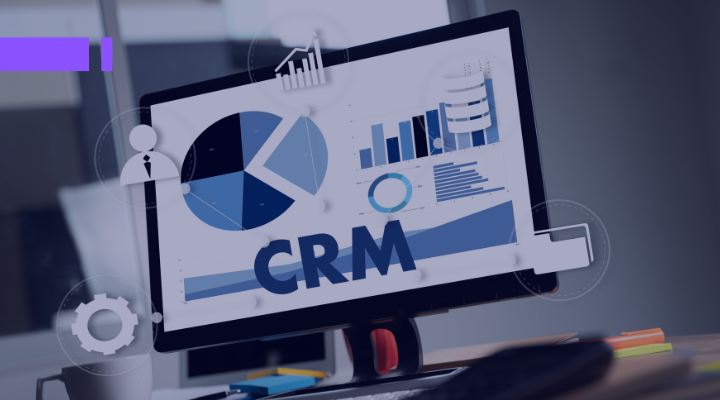In the fast-changing digital landscape, few things change quite as quickly as the platforms, conventions, and user behaviours on social media. In a sea of content competing for users’ attention, how can your business remain relevant?
Enter Artificial Intelligence (AI). AI in social media marketing is being touted as the ultimate game-changer. But does it really work? Where can you use it? How do you use it?
This quick guide provides you answers to all these questions. It will show you how to use AI for social media marketing to boost both reach and relevance.
Table of Contents
| Understanding AI in Social Media Marketing |
| 1. Audience Targeting and Personalization |
| 2. Social Listening and Sentiment Analysis |
| 3. Performance Analysis and Optimization |
| Practical Applications of AI in Social Media Marketing |
| 1. Automated Content Creation and Scheduling |
| 2. Predictive Analytics for Trend Forecasting |
| 3. Image and Video Recognition |
| 4. Chatbots for Customer Engagement |
| 5. Social Listening and Sentiment Analysis |
| AI in Social Media Marketing: Boosting Reach & Relevance |
Understanding AI in Social Media Marketing
In this guide we will first discuss the revolutionary role that AI is now playing in social media marketing, and then move on to discuss some of the practical ways it can be effectively used to enhance your marketing efforts on social media.
So, AI is being used in diverse ways for social media marketing. Companies leverage it for:

1. Audience Targeting and Personalization
AI algorithms analyse user data and behaviour patterns to segment audiences based on demographics, interests, and preferences. This allows businesses to deliver personalized content and targeted advertisements to specific audience segments, increasing engagement and conversion rates.
Moreover, AI-powered chatbots and virtual assistants enable businesses to interact with users in real-time, answering queries, providing recommendations, and driving customer engagement on social media platforms.
2. Social Listening and Sentiment Analysis
AI-powered social listening tools monitor conversations, mentions, and trends on social media platforms to gauge public sentiment and identify relevant topics and discussions.
Sentiment analysis algorithms analyse text data to determine whether sentiment is positive, negative, or neutral, enabling businesses to understand customer feedback, identify potential issues, and respond promptly to customer inquiries and concerns.
3. Performance Analysis and Optimization
AI-driven analytics tools provide businesses with actionable insights into the performance of their social media marketing efforts.
These tools analyse key performance indicators (KPIs) such as engagement rates, click-through rates, and conversion metrics to measure the effectiveness of social media campaigns.
By identifying trends, patterns, and opportunities for improvement, businesses can optimize their social media strategy to achieve better results and maximize return on investment (ROI).
But how, you may ask, is this useful to you? Well, all of those abstract possibilities lead to some very concrete applications. Read on…
Practical Applications of AI in Social Media Marketing
Given here is an indicative list of some practical applications of AI. While this is not an exhaustive list it gives you a fair idea of how to use AI in social media marketing.

1. Automated Content Creation and Scheduling
AI-powered content creation tools streamline the process of generating engaging content for social media platforms. These tools leverage natural language processing (NLP) algorithms to analyse trends, keywords, and user preferences, enabling businesses to create high-quality posts, articles, and captions effortlessly.
Moreover, AI-driven content scheduling platforms analyse audience behaviour and engagement patterns to determine the optimal times for posting content. By automating the scheduling process, businesses can ensure that their content reaches the right audience at the right time, maximizing visibility and engagement.
2. Predictive Analytics for Trend Forecasting
AI-driven predictive analytics tools analyse historical data and trends to forecast future topics, hashtags, and content themes that are likely to resonate with the target audience.
By leveraging predictive analytics, businesses can stay ahead of the curve, capitalize on emerging trends, and create timely and relevant content that captures audience attention.
For example, an AI-powered predictive analytics platform can analyse social media conversations, search trends, and industry news to identify upcoming trends and topics relevant to the business. Armed with this information, businesses can create content that aligns with current interests and captures the attention of their audience.
3. Image and Video Recognition
AI algorithms can analyse images and videos posted on social media platforms to identify objects, scenes, and faces. This capability enables businesses to understand the visual content shared by their audience, track brand mentions in user-generated content, and monitor the use of their logos and products across social media platforms.
For instance, an AI-powered image recognition tool can identify when a brand logo appears in user-generated content on social media platforms. This allows businesses to track brand mentions, monitor brand sentiment, and identify opportunities for engagement or outreach.
4. Chatbots for Customer Engagement
AI-powered chatbots and virtual assistants are revolutionizing customer engagement on social media platforms. These intelligent systems can interact with users in real-time, answering queries, providing recommendations, and guiding users through the sales process. By leveraging chatbots for customer engagement, businesses can provide personalized assistance, streamline customer support, and enhance the overall user experience.
For example, a business can deploy a chatbot on its Facebook page to assist customers with common inquiries, such as product information, order status, or troubleshooting. By automating these routine tasks, businesses can free up resources and focus on more strategic initiatives to drive business growth.
5. Social Listening and Sentiment Analysis
AI-powered social listening tools monitor conversations, mentions, and trends on social media platforms to gauge public sentiment and identify relevant topics and discussions.
Sentiment analysis algorithms analyse text data to determine the range, quality, and kind of sentiment, enabling businesses to understand customer feedback, identify potential issues, and respond promptly to customer inquiries and concerns.
For example, a brand can use social listening tools to track mentions of its products or services on Twitter. By analysing the sentiment of these mentions, the brand can identify trends, spot potential issues, and engage with customers to address concerns or provide assistance.
By leveraging AI-powered social listening and sentiment analysis, businesses can gain valuable insights into customer sentiment, identify opportunities for engagement, and enhance brand reputation and customer satisfaction.
AI in Social Media Marketing: Boosting Reach & Relevance
AI is transforming the landscape of social media marketing, offering businesses unprecedented opportunities to enhance their presence, engage their audience, and achieve their marketing objectives.
Using AI-powered tools and techniques for content creation, audience targeting, performance analysis, and customer engagement, businesses can stay ahead of the curve in an increasingly competitive digital landscape. They can boost both reach and relevance.
Follow us for more on LinkedIn





